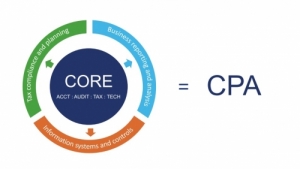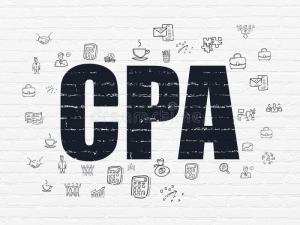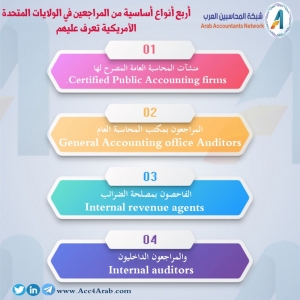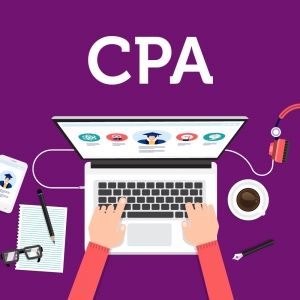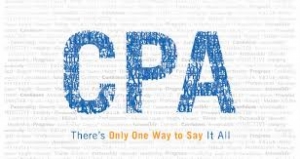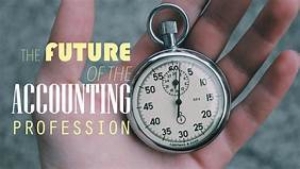عرض العناصر حسب علامة : CPA Exam
تعرف على ما تدرسه لامتحان CPA
إذا كنت تستعد لامتحان CPA، فسترغب في معرفة المزيد حول ما تم اختباره وكيف سيتم الاختبار. بالنسبة لمحتوى الاختبار، لا تنظر إلى أبعد من مخططات امتحان CPA.
منهج امتحان المحاسب القانوني المعتمد CPA يتغير: إليك ما تحتاج إلى معرفته
تواجه مهنة المحاسبة تغيرًا هائلاً، يتعلق الكثير منها بالتكنولوجيا. لا يشمل ذلك استخدام تحليلات البيانات وأتمتة العديد من مهام المحاسبة فحسب، بل يشمل أيضًا التحديات المتزايدة للأمن السيبراني وحوكمة تكنولوجيا المعلومات. لقد تغير دور المحاسبين أيضًا، وأصبح أكثر استراتيجية مما كان عليه في العصور السابقة.
معلومات إضافية
-
المحتوى بالإنجليزية
The CPA exam curriculum is changing: Here’s what you need to know
By Angie Brown
November 17, 2021, 10:47 a.m. EST
4 Min Read
Facebook
Twitter
LinkedIn
Email
Show more sharing options
The accounting profession is facing enormous change, much of it related to technology. This not only includes the use of data analytics and the automation of many accounting tasks, but also the rising challenges of cybersecurity and IT governance. The role of accountants has changed too, becoming more strategic than in previous eras.
Accountants are still expected to report the numbers; they’re also increasingly relied upon to use that data to inform business decisions, and that requires a greater emphasis on critical thinking skills. It’s also made it necessary for CPAs to more actively contribute to long-term financial strategy and not just the current numbers.
This evolution of the profession will be reflected in a new CPA exam that will be launched by the AICPA and NASBA beginning in 2024.
Payroll Relief: The Ultimate Payroll Software for Accountants
SPONSOR CONTENT FROM ACCOUNTANTSWORLD
The new exam will include three core exams covering accounting, auditing and tax, and three "discipline exams:" business analysis and report, information systems and controls and tax compliance and planning. All candidates will be required to complete the core exams, and then each candidate will choose a discipline exam to demonstrate deeper skills and knowledge.
Current undergraduates who enrolled in accounting programs starting in the fall of 2020 will be taking the updated exam. But the exam itself (the proposed content of which will be unavailable until June 2022) isn’t all that will change; to prepare students and academics for the new exam, the curriculum for accounting courses will have to change as well.
For that reason, AICPA and NASBA developed and launched the CPA Evolution Model Curriculum earlier this year. The model curriculum offers an overview of what educators need to teach in order to prepare students for the new exam in 2024, consisting of two main components: Part 1, covering the CPA Evolution Core, which is divided into the Accounting and Data Analytics Core, the Audit and Accounting Information Systems Core, and the Tax Core, and Part 2, covering the CPA Evolution Discipline, which is divided into the Business Analytics and Reporting Discipline, the Information Systems and Controls Discipline, and the Tax Compliance and Planning Discipline.
The goal of the model curriculum is to support existing accounting programs as they navigate the evolution of the accounting profession and the CPA exam, and to serve as a reference point for faculty to leverage as they deem appropriate based on their program objectives.
Most of the concepts outlined in the model curriculum are currently tested on the CPA exam but there are a few components that go beyond what is currently tested. The Accounting and Data Analytics Core includes critical thinking, which is defined as the ability to identify financial data risks and opportunities using relevant facts to make appropriate financial decisions.
The addition of a critical thinking module indicates the enhanced importance to the CPA exam — and to the accounting profession as a whole — of competency related to thinking beyond the numbers to inform decision-making.
The CPA of the future will need to think more strategically about utilizing information to achieve long-term goals. Additionally, the Accounting and Data Analytics Core includes two other new modules: financial data analytics and digital acumen. Digital acumen has also been included in the Audit and Accounting Information Systems Core and the Tax Core.
The discipline tracks have been designed to give future CPAs a deeper focus on areas of advanced or emerging content, with a greater emphasis on technology. The model curriculum for the BAR Discipline includes an extensive focus on advanced data analytics, while the ISC Discipline curriculum includes the use and management of data, including data governance and data preparation and manipulation.
ISC also includes a much stronger emphasis on information systems, security, IT controls and other related technology concepts, again reflecting the need to prepare future CPAs for technological change. Technology has been added to the TCP Discipline, emphasizing analytical review leveraging data and regulations regarding use of technology in tax compliance and planning (an increasingly important competency due to cybersecurity issues).
There is also a new module on personal financial advisory services in the TCP Discipline entailing individual tax planning, estate, gift and trust taxation, compliance and planning, and retirement planning.
Time to worry?
Should educators and students be concerned about these changes? Adjustments will need to be made, especially when it comes to choosing a discipline track. Students may feel stressed or intimidated about committing to one track or another (as opposed to now, when they take all four existing parts of the CPA exam).
But making this decision need not be overwhelming; educators can work closely with students to capitalize on the students’ strengths and interests to choose a track, and hiring organizations can also be involved in the conversation. Ultimately, students will have the opportunity to specialize in a particular area of accounting and thus improve their own competency and employability.
The increased emphasis on technology across the curriculum might seem overwhelming to students and educators, but they should keep in mind that the AICPA and NASBA are updating the focus of the curriculum based on the technology being used in the field, not jumping ahead of the profession as a whole.
For anyone concerned about these developing changes, just remember that CPA Evolution is not CPA Revolution; what we’re seeing is a gradual and necessary adaptation in line with the current reality of the profession, not a sudden shaking up of everything familiar. Keep calm, carry on and just pay attention as the new exam curriculum unfolds.
بناء مهنة محاسبية
ماذا تفعل بشهادة المحاسبة في عام 2021؟ منذ وقت ليس ببعيد، كانت الإجابة على هذا السؤال واضحة إلى حد ما، ولكن في هذه الأيام، أصبحت الفرص المهنية لخريجي المحاسبة والمالية أكثر انفتاحًا. إن الطلب الكبير على خريجي المحاسبة، المنتشر عبر العديد من الصناعات التي تتطلب مهاراتهم وتخصصاتهم المتخصصة (ويقدمون مكافآتهم الخاصة)، يضع محترفي المحاسبة الشباب في مساحة مفتوحة على مصراعيها في بداية حياتهم المهنية.
معلومات إضافية
-
المحتوى بالإنجليزية
Building an accounting career: One size does not fit all
By Sean McCabe
August 30, 2021, 9:00 a.m. EDT
8 Min Read
Facebook
Twitter
LinkedIn
Email
Show more sharing options
What to do with an accounting degree in 2021? Not too long ago, the answer to that question would have been fairly straightforward, but these days, professional opportunities for accounting and finance graduates are much more open-ended. A high demand for accounting graduates, spread across multiple industries that require their own niche skills and specialties (and offer their own rewards), puts young accounting professionals into a wide-open space at the start of their careers.
That being said, there’s definitely a paradox of choice for students and young professionals. With so many paths open, how do you know which one to take? What questions should young accountants consider before committing to a certain field of study or area of expertise?
In an age when accountants can seemingly pursue any professional path they wish, the only thing that’s certain is that nothing is. And while it can be daunting to have so many options to consider at the start of one’s career, experts in the field stress that the flexibility available to young professionals is a great asset.
“Accounting grads need to know that there is an abundance of options for them to pursue — CPAs do more than just audit and tax,” said Elizabeth Brown, student and diversity outreach manager at the Illinois CPA Society. “Their skills and background allow them to work in any area of their choosing, with expanded opportunities in areas like consulting services and technology. Plus, with CPAs retiring out of the profession and a decline in the number of CPA candidates, [they] are in high demand, with more advancement opportunities.”
“Each career path will not be exactly the same for any two individuals,” said Becky Sproul, talent and culture leader for audit at Big Four firm KPMG. “Career paths will be determined by the ability to provide insights and deliver value through baseline accounting knowledge coupled with future-focused technology skills.”
And if young professionals find themselves in a role or career path that’s not right for them, the need for accounting professionals across multiple industries gives them plenty of opportunities to try something new.
“My experience has been that accounting and finance is a flexible space to expand your career,” said Michael Rodriguez, a CPA and 2013 graduate of the University of Illinois at Chicago, currently on staff at WEC Energy Group. “I started in public accounting, where I had experience in personal tax and audit of companies in the financial services industry. I [now] work in internal audit for an energy/utilities conglomerate.”
The remote revolution
Another new factor to consider in young peoples’ careers is the opportunity to start — and perhaps carry out the rest of their careers — in a remote work environment. As the COVID-19 pandemic forced much of the field into new work environments last year, new accounting professionals were tasked with starting their careers in this unique setting. However, some appreciate the newfound ability to work exactly where and how they want, adding even more to career flexibility.
“It will be interesting to see how corporations adjust to new ways of working after the COVID-19 pandemic,” said Jennifer Kreb, a 2017 graduate of DeVry University and senior associate at KPMG in Dallas. “Personally, I would like a hybrid approach with the option to work at home a few days a week and at the KPMG office or client site a few days a week as well. Many young professionals are looking for increased flexibility, so it will be interesting to see how firms respond and how this will impact company culture, real estate and office spaces.”
This freedom doesn’t come without caveats, however. “The skills, characteristics and work ethic that employers are looking for haven’t changed just because employers are now hiring remote,” added Jeff Phillips, CEO of Padgett Business Services and co-founder of accounting staffing firm Accountingfly. “Good training, putting in hard work to learn the technical skills, having the highest integrity, and being a great team player are still essential for getting the best roles. … There is one new skill I think it’s critical to learn — learn how to work remotely well. This requires self-discipline and a self-starter mindset, great writing skills and video communication. It’s the first thing a remote employer will look for before moving on to the core technical skills.”
Sergey Nivens - stock.adobe.com
The right skill set
Even as the possible pathways for future accountants multiply, so too does the number of abilities that they’ll need to pursue them, and that potential employers will expect them to have.
“Regardless of the shape a career in accounting takes, it’s going to require the ability to constantly adapt and learn new skills to meet the challenges of the day,” said Sue Coffey, the CEO of public accounting at the Association of International Certified Professional Accountants. “In 2021, we’re continuing to see some of the greatest opportunities in the profession around technology. Any career path in accounting in 2021 is going to require a core knowledge of technology and the ability to harness it to meet the needs of clients and drive success in organizations.”
While a basic understanding of technology is a clear necessity, the rest of the young accountant’s toolkit can be a bit unclear when it comes, for instance, to deciding what specific college major, degree or licensure to pursue.
Take, for instance, the CPA license: It’s the gold standard in accounting credentials, but has been steadily losing its appeal to young accounting and finance professionals over the last few years. An Illinois CPA Society report released earlier this year, “A CPA Pipeline Report: Decoding the Decline,” found that a growing number of young professionals don’t find licensure necessary because they “do not see the return on investment; they do not see their employers or prospective employers supporting or requiring it; and they see other credentials or specialties as being more valuable to their careers,” according to Kari Natale, ICPAS senior director of planning and governance.
Also take into consideration the newly unveiled CPA Evolution education model, via the American Institute of CPAs and the National Association of State Boards of Accountancy, which is bullish on teaching a curriculum that reflects a “deep understanding of new and emerging technologies … essential for CPAs entering the profession,” according to Coffey.
So if the idea of what an accountant is (and can be) is in flux, where exactly should one start in their collegiate careers? “A strong skill set in tax or audit is a great start for success in the profession,” Coffey said. “But the importance of skills like problem-solving, critical thinking and professional skepticism cannot be understated. Working to develop these skills, understanding the power of effective and persuasive communications and presentation skills, and developing leadership traits will help take your career to the next level.”
“Young professionals should take a multipronged approach to their skill development and be sure they do not ignore the ‘soft’ skills, such as communication, project management and people skills,” added Sproul. “In addition to continually building their accounting and auditing acumen and technology skills, they must develop a strong relationship with their clients and understand their clients’ business and industry as well as — or better than — their clients.”
And despite recent changes in attitudes, experts still stress that the CPA license opens more doors than it closes. “Students can set themselves up for the greatest success by earning their CPA license before they begin working full-time,” said the ICPAS’s Brown. “We … see young professionals regretting not taking their CPA exams sooner because they find themselves at a disadvantage having to adjust to the time commitments of their job and preparing for the CPA exams.”
Asking the right questions
The sheer range of opportunities available to young accountants, and the way they can be tailored to suit the individual, makes it impossible to advise young accountants on a one-size-fits-all career path — but experts do offer very specific advice on how they can make the most of all the possibilities for the longest possible time.
To start, simply taking a proactive approach early in one’s career is one of the best decisions young professionals can make. “Planning a career really begins as a student, and one common mistake we see is when students don’t take advantage of the opportunity to explore various career options through their internships, and then feel locked into a career path that may not be the best fit for them,” said Brown.
“I also think the sooner a young professional adapts a lifelong learning mindset, the better off they will be,” added Coffey. “I don’t know anyone who came into the profession with a base of skills and knowledge that they were able to rely upon for their entire career. And with the pace of change quicker than ever, embracing a cycle of learning, unlearning and relearning is essential to continued development.”
It’s also become voguish in recent years for young professionals to start in public accounting and then transfer over to private businesses in fairly short order. Our experts, though, say that moving on too quickly isn’t necessarily the best move.
“One of the questions they should ask is what’s the rush to get out of public accounting?” said AccountingFly’s Phillips. “Why go in-house? I think this speaks to every candidate. [They] should know their goals and have a vision for their career. Don’t chase every shiny object that comes along, and in these days, lots of opportunities will come calling, so it’s important to have a sense of where you’re going.”
“Take advantage of the many opportunities a career in public accounting provides,” suggested Sproul. “Try a rotation, apply for a role on an international engagement, and develop new skills to become a well-rounded professional — whether those skills are in accounting, technology or soft skills.”
Seeking mentorship is another crucial factor early in one’s career, as it gives young professionals not only an advantage in areas such as networking, but a direct, human connection to what their future selves can accomplish.
“I have gotten a lot of advice from audit managers and partners I have worked with,” said KPMG’s Kreb. “It is often when you become comfortable and develop trust with someone that you can have honest and vulnerable discussions about long-term careers, happiness as a manager/partner, the factors that keep someone at [the firm], and advice for specific situations.”
الكشف عن منهج تطور شهادة المحاسب القانوني المعتمد الجديد في يونيو
أعلن المعهد الأمريكي للمحاسبين القانونيين AICPAوالرابطة الوطنية لمجالس المحاسبة بالولاية ( NASBA ) أنهم سيكشفون عن المنهج المحاسبي لنموذج تطور CPA الجديد خلال حدث إطلاق مجاني عبر الإنترنت في يونيو ، والذي يستضيفوه بالاشتراك مع جمعية المحاسبة الأمريكية.
Certified Public Accountant CPA شهادة محاسب قانوني معتمد
شهادة المحاسب القانوني المعتمد تخلق قيمة للشركات من خلال إيجاد طرق جديدة للإستفادة من خبرة و رؤية المحاسب القانوني المعتمد للكشف عن مسارات استراتيجية جديدة الى الأمام
إنفوجرافيك.. أربع أنواع أساسية من المراجعين في الولايات المتحدة الأمريكية تعرف عليهم
أربع أنواع أساسية من المراجعين في الولايات المتحدة الأمريكية تعرف عليهم
برومتريك يمد إغلاق موقع اختبار CPA بسبب فيروس كورونا
الوجه الأخرلمهنة المحاسبة
معلومات إضافية
-
المحتوى بالإنجليزية
The next face of the accounting profession
The AICPA's “2019 Trends in the Supply of Accounting Graduates and the Demand for Public Accounting Recruits" breaks down the new face of the profession as it enters a new decade.
The biennial report, first published in 1971, is based on university responses from the 2017-2018 academic year and U.S. accounting firm responses from the 2018 calendar year. This year's report found that the face of the profession is changing — between more diverse candidates and a rise in non-accountants hired by firms.
AICPA-trends-accounting-enrollment-2019
Enrollment in bachelor's accounting programs reached its second-highest level in the 2017-2018 academic year, following a high in 2016-17.
The number of new CPA candidates dipped again in 2018, after reaching previous highs in 2010 and 2016.
Accounting bachelor's graduates are becoming more diverse, with a notable rise in Hispanic/Latino graduates.
The ethnic breakdown of CPAs in firms, however, remains largely uniform.
While firm staff are evenly split male and female, partners remain overwhelmingly male.
The hiring of non-accountants reached an all-time high last year, perhaps foreshadowing trends in the decade ahead.
Firms that hired accounting grads in 2018 largely expect to hire the same amount in 2019. Firms that hired non-accountants are mostly unsure as to how many they'll hire in 2019.
Ninety percent of firms expect to have the same number of CPAs or more on staff in 2019.




